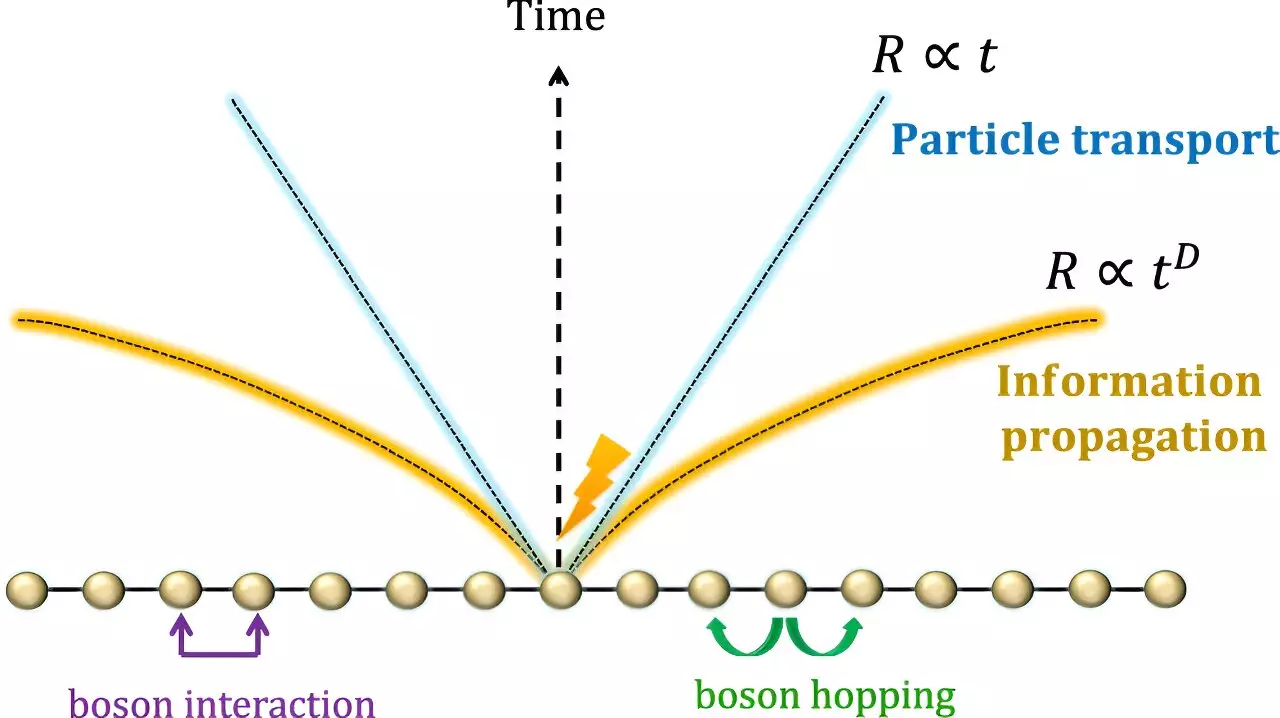The recent study conducted by Japanese scientists sheds light on the dynamics of quantum information propagation within interacting boson systems such as Bose-Einstein condensates (BECs). This study challenges the conventional beliefs surrounding the Lieb-Robinson bound and its applicability to bosonic systems.
Quantum many-body systems, particularly interacting boson systems, play a pivotal role in various domains of physics. The Lieb-Robinson bound describes the rate at which changes or information spreads across a quantum system. Unlike the instantaneous propagation of classical information, quantum information transmission is limited by this bound.
The unique nature of boson systems, characterized by unlimited energy potential and long-range interactions, poses significant challenges in modeling and simulating these systems. While the Lieb-Robinson bound sets a universal speed limit for information propagation, the application of this bound to interacting boson systems has historically presented difficulties.
To understand the dynamics of interacting boson systems, the researchers employed the Bose-Hubbard model, a theoretical framework that considers the hopping and on-site interaction of bosons in a lattice structure. By studying the Lieb-Robinson bounds within a D-dimensional lattice governed by this model, the researchers uncovered crucial insights into boson transport speed and error propagation.
The study revealed that while boson transport speed is limited in interacting systems, the presence of clustering enhances information propagation along specific lattice paths. This accelerated propagation, constrained by polynomial growth, underscores the complex interplay between boson interactions and information transmission. Moreover, the research provided insights into simulating interacting boson systems efficiently using elementary quantum gates.
Unlike fermionic systems that exhibit a finite speed limit for information propagation, bosonic systems demonstrate a non-linear growth in information transfer over time. The ability of bosons to occupy the same state simultaneously facilitates faster information dissemination, highlighting the distinct characteristics of bosonic information transmission.
The findings of this study pave the way for further exploration of interacting boson systems in condensed matter physics and quantum thermalization. By leveraging the insights gained from this research, scientists can potentially discover new quantum phases and unravel the mechanisms underlying the thermal equilibrium of closed quantum systems.
The study conducted by Dr. Tomotaka Kuwahara and his team represents a significant advancement in our understanding of quantum information propagation in interacting boson systems. By challenging existing notions and exploring the intricate dynamics of bosonic systems, this research opens up new avenues for investigating quantum phenomena and phenomena.



Leave a Reply